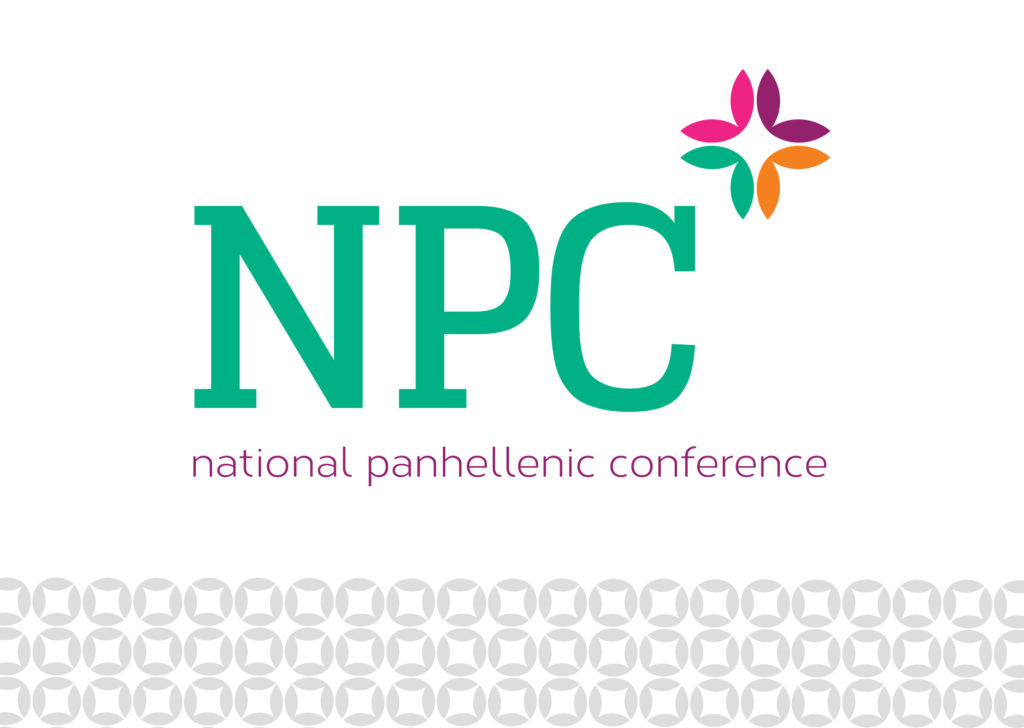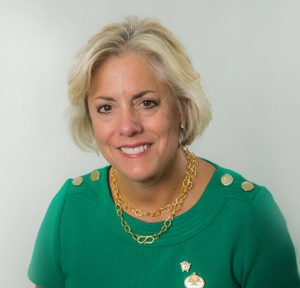Three Considerations For Addressing Racism In The Panhellenic Community

by Carole Jurenko Jones, Alpha Delta (U of Alabama), 2019-2021 NPC Chairman

I write to you this month during a period of sincere reflection and sadness—in our nation and within our community.
The killings of George Floyd and Breonna Taylor, among far too many others, are challenging each of us, and the organizations to which we belong (Panhellenic and otherwise), to more substantively and candidly engage about race and confront racism.
For the members of the National Panhellenic Conference Board of Directors, the time and place in which we find ourselves has called for clear acknowledgement that racism—within society and within the Panhellenic community—is not an issue we can address simply through kindness or greater respect for one another (as important as those may be). Instead, we must carefully consider the structural and systemic reasons that too many women of color do not view our organizations as places where they feel welcomed, understood or heard.
Our approach must change, and the Board of Directors offers at least three considerations we must confront if we are to honestly reconsider our path forward as a conference and a community of Panhellenic women:
First, our organizations do not reflect the diversity that our Panhellenic communities hope to achieve. As a community, we don’t make ourselves broadly attractive to women of color and we have too often fallen short in supporting our Black and Brown sisters.
The reasons for this are numerous and grounded in a clear history of past discrimination. It is vital, however, that we confront the reality that the lack of diversity within our ranks is not an accident. Decades of narratives, norms and practices have made the “typical” sorority experience understood through a white lens. This is uncomfortable to consider, but it is true.
Second, we believe that we must consider—and change—the systems and norms within the Panhellenic community that have historically benefited and centered the experiences of white women and women of privilege, more generally.
The manner in which we respond to this second area will determine whether we will ultimately make progress in the first. We know that many of our member organizations are already engaging in some of this work. As a board, we recognize these changes at the organizational level must reflect each organizations’ values, culture and sense of purpose. However, as a Panhellenic community, we must acknowledge that we are tied together, and creating lasting change will require each of us to re-evaluate long-standing assumptions about how we operate, recruit and support collegiate sorority women.
Third, as a Panhellenic community, we have an obligation and responsibility to empower our members and volunteers and to openly discuss race and racial injustice.
For many of us in the Panhellenic community, we become reserved and hesitant when race or racism are discussed. In many cases, we have been taught that “we don’t see color” or to “treat everyone equally.” These feelings and sentiments are sometimes understandable and often well-intended, but—as the members of the board have learned—their effect is to ignore and brush aside the many ways that race does shape our society and create unequal experiences within our community. If we are to prepare and empower young women as future leaders, and particularly if we are going to fully embrace BIPOC (Black, Indigenous and People of Color) and LGBTQ+ Panhellenic women, we must no longer shy away from or be fearful of these critical conversations.
As we consider each of these areas, and others that will no doubt arise, we also ask for some grace. We, as a community, will stumble as we work to find our way. But our hope is that we can drive real change that reinforces the foundational values and strength of the Panhellenic experience.
In the near term, this will likely mean difficult and meaningful conversations, the creation of new resources and a commitment to support and work with College Panhellenics as we consider the themes addressed in this note. In the long term, it will require us to continue critical conversations with our Black and Brown sisters, as well as those who advocate for and support them, in order to develop and implement new approaches, policies, agreements and expectations.
For more than 100 years, the National Panhellenic Conference has been an organization that advances the sorority experience together. It is clearer than ever before that our ability to do that effectively now—and to empower collegiate women in the current moment—calls us to reimagine what “together” truly means.
We are humbled by the many comments and experiences shared within our community in recent weeks, and we remain optimistic about our ability to join together in creating a welcoming, inclusive Panhellenic community that our current and future members deserve.

